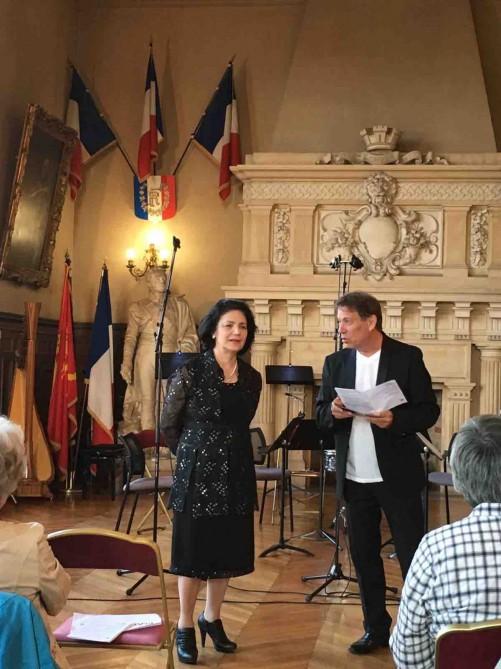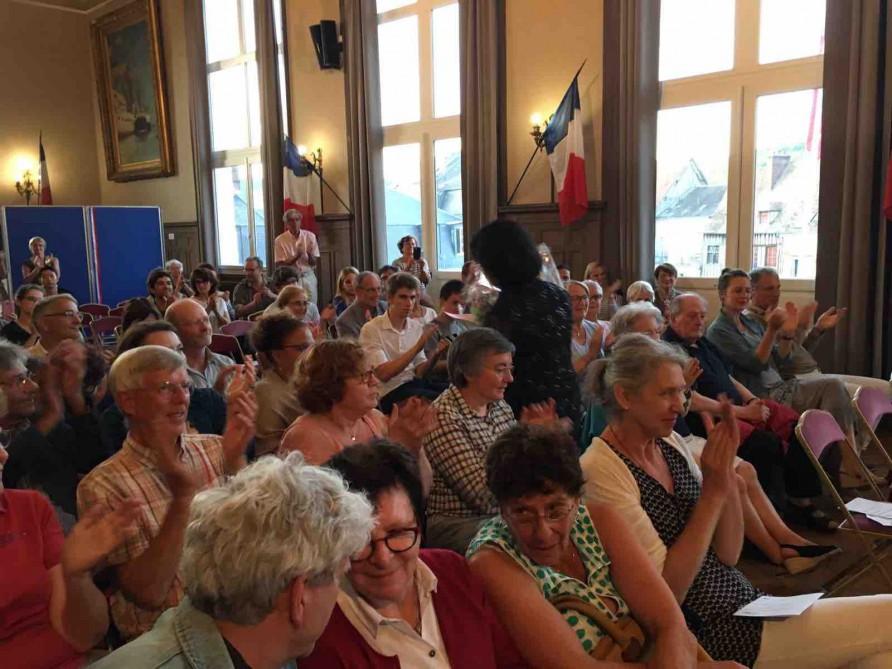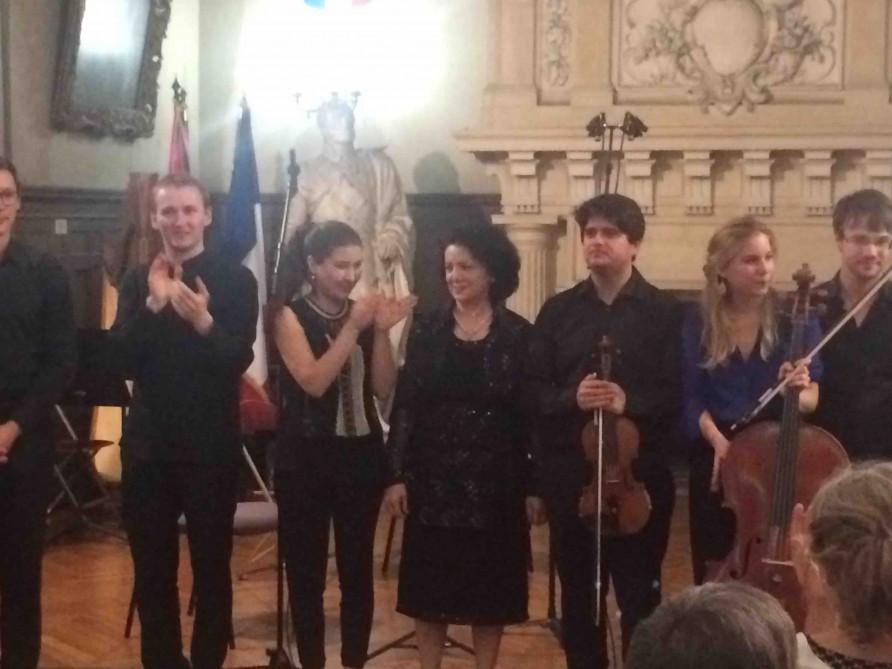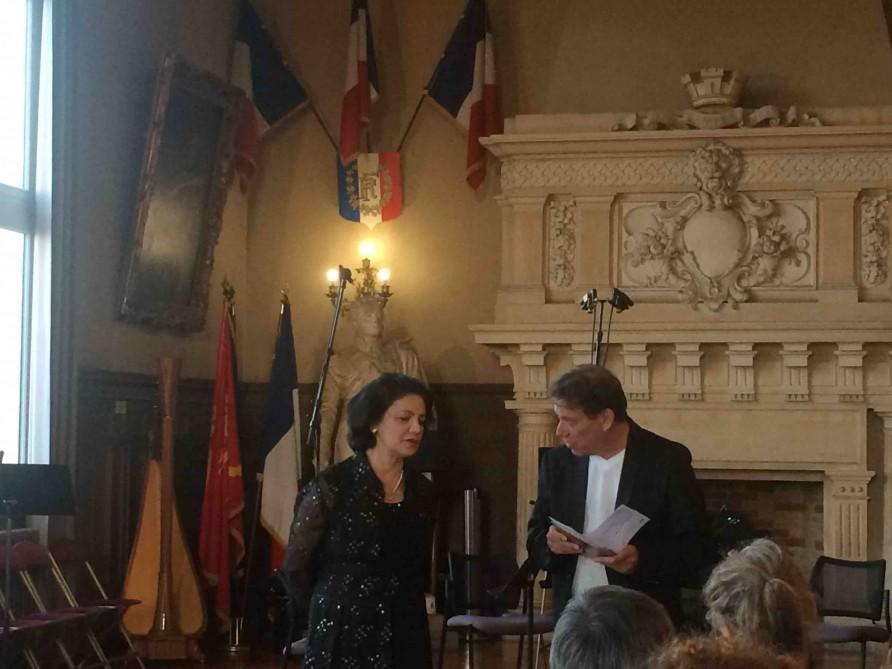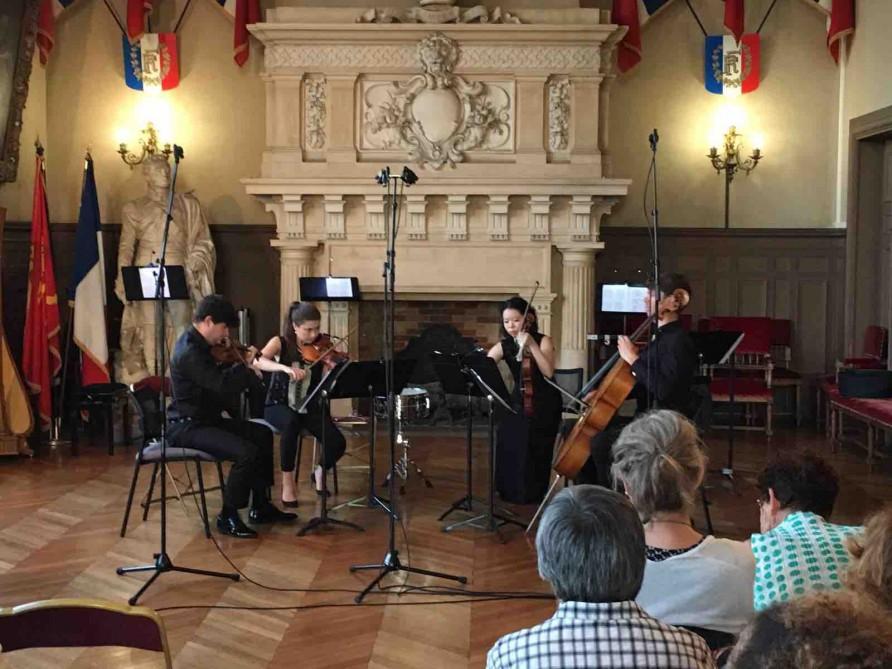Azerbaijani music amazes Festival Musique de Chambre à Giverny [PHOTO]
![Azerbaijani music amazes Festival Musique de Chambre à Giverny [PHOTO]](https://www.azernews.az/media/2017/08/22/inspirational1.jpg)
By Laman Ismayilova
The Festival Musique de Chambre à Giverny, annually held in the Normandy region of France, paid tribute to Azerbaijani classical music as a part of the main theme of its 13th edition, which was La Route de la Soie (The Silk Road).
The festival, which will run until August 17, will feature 11 concerts and a conference, Azertac reported. The French office of The European Azerbaijan Society (TEAS) supported the event.
Taking place in a range of picturesque and evocative locations, including the Musée des Impressionnismes in Giverny and the Mairie de Vernon , the concerts in the Silk Road strand of the festival featured original works by Azerbaijani and Eastern composers, alongside their western counterparts who were inspired by the Orient.
The event saw revered contemporary Azerbaijani composer Firangiz Alizade presenting several of her own works in a festival that also celebrated her 70th birthday. Chair of the Azerbaijani Composers’ Union for the past decade, she was inspired by the great Azerbaijani composer Gara Garayev, her lecturer at the Baku Conservatoire.
Her variations on Mugham Sayagi for string quartet opened the concert Sur les routes de la Soie (On the Silk Roads) on August18. Cellist Michel Strauss, Artistic Director of the Festival, prefaced the concert by saying: “Firangiz Alizade is an extraordinary woman who has created a unique musical language, combining the traditional music of her country with the classical avant-garde. Her music forms an integral element of tonight’s musical journey.”
Firangiz Alizade, in turn, stressed that Mugham Sayagi was a very important piece for her, having originally been played by the Kronos Quartet. “It is mystical and impressionistic and contains themes from mugham, which brings together the art forms of poetry and music,” she added.
The work was performed in a dramatic style, opening with the violinists having their back to the audience, the piece beginning with a plaintive drone, and passing through a gradual crescendo, pizzicato strings, lyrical sections, dance motifs, and the use of a gong and triangle. The performance ended with all the musicians turning their backs on the audience as they slowly walked away in ebbing silence.
Following the performance and a moment of rapt silence, the audience gave a standing ovation with multiple curtain calls for Alizade and the musicians.
Also on the programme was the premiere of a string quartet transcription of Nikolai Rimsky-Korsakov’s Scheherazade, inspired by the easterly regions of the Russian Empire and contemporary Chinese composer Tan Dun’s Eight Colours, all of which served to illustrate a reading of explorer Marco Polo’s Book of Marvels.
The following day featured Alizade’s Reqs, representing the various forms of Azerbaijani national dance, originally written for the Kronos Quartet. This was followed by her compatriot Fikret Amirov’s Symphony for String Quartet in memory of the poet Nizami, comprising themes from his 1947 ballet written in memory of Nizami Ganjavi, who is generally regarded as the greatest epic poet in Azerbaijani history, whose works included Leyli and Majnun (1192) and the Seven Beauties (1197).
The other works on the programme were Luciano Berio’s 1964 cycle Folk Songs, which included his evocative Azerbaijani Love Song for soprano and Maurice Ravel’s song cycle Shéhérazade, a setting of poetry for soprano, describing Central and Eastern Asia and the Muslim East. The concert was preceded by a conference on musical relationships on the Silk Road, chaired by Agathe Keller.
The centrepiece of the concert on 20 August, amidst the creative surroundings of the Musée des Impressionnismes, entitled On the Shores of the Caspian, was the world premiere of Ali-Zadeh’s Création for principal cello, flute, two violins and viola. Other works on the programme included arrangements of Alexander Borodin’s tone poem In the Steppes of Central Asia and his Polovtsian Dances from the opera Prince Igor, describing a Turkic tribe, some of whom came to live by the Caspian Sea. The programme also included a rare western performance of Soviet composer Reinhold Glière’s Overture to Shakh-Senem, composed in Azerbaijan soon after it entered the Soviet Union in 1923.
The other theme of the festival was Musique en Révolution (Music in Revolution) inspired by the centenary of the Bolshevik Revolution.
---
Follow us on Twitter @AzerNewsAz

